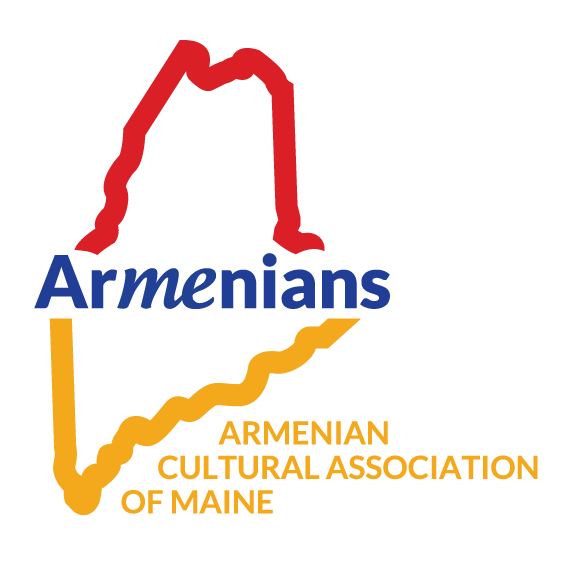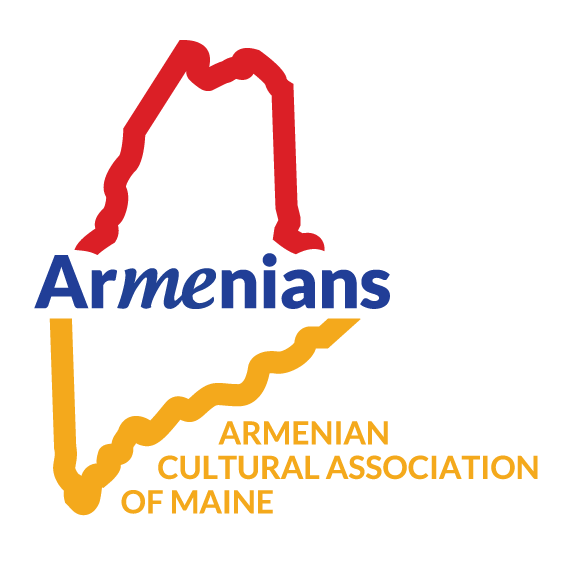PATRICIA TEVANIAN
Patricia attended Northeastern University for her undergraduate and attained an MBA at the University of Southern Maine. She was a medical technologist who worked in the laboratory at the New England Deaconess Hospital in Boston and then came back to Portland to work at the Maine Medical Center. Patricia worked as the head of hematology at Maine Medical Center until retirement.
Question:
Pat, how did your family come to live in Portland?
Answer:
My grandfather was here in 1911. And my parents came in 1921. But I don't know how, you know, my, my grandfather, when he came he, his brother came and a nephew, so forth. That's probably how they did it … I heard from other people, that when they got to Ellis Island, people would say, you know, that … Maine needed several families up there. And I guess that's how they, they did it way back. And then when the families came, their relatives had gone.
They were from Kigi. And that's the state. It's near Erzurum … And my mother came from Genc. They were in neighboring, town, I guess.
My grandfather, my paternal grandfather came in 1911. And my other side, my mother's family went to Michigan … But she, of course, was married to my father and this is where she came. They were in Russia. They escaped into Russia. During the Genocide. My father was in the, I guess, the makeshift Armenian army, you know that the Russians helped. And a lot of the Armenians went into Russia. My mother came, and father came from towns near Erzurum and I happen to look on the map and that's the closest border would be Russia. So that's probably why they went that way.
Question:
Did they ever tell you any stories about what was going on during the Genocide?
Answer:
No, not really. I'm the youngest of five, well, actually nine children, she lost four children. And so my father, I was six when my father died. So of course, I don't remember. But my mother she was widowed, at 40 years old. She had five children. My brother was 19, I think at the time and I was six. Four out of the five were college graduates. My brother (Caspar) who was born over in Russia. Or Georgia, I think it was, the country of Georgia. I'm not sure. I always thought it was Russia … Someone told me it was Georgia, so, which is close by. He came when he was three months old. He came to the States when he was three months old. And they said that was 1921. He became an attorney. And he was in the state legislature. He was a state representative. My brother Caspar was in the Second World War. And when he got out, he went to law school. He was the oldest.
Question:
So, your parents were married over there?
Answer:
Yes. They were married over there. They came here in ‘21. Because my father's father was here in 1911. With his brothers and so forth, so that's how they came to Portland.
My father came. Came in 1911, I think.
My mother had nine children. Four died young and the five of us were adults. And out of those five children, my brother Caspar became an attorney. He was in the state legislature under Muskie. My sister (Agnes) married someone that graduated from MIT. He was from Guatemala. So she went down there but that marriage didn't last more than 11 years. And she had her degree. She was, MSW, Masters in social work.
Casper was the oldest, Agnes was second, then my brother Arthur, who just passed away in April. Went to university in Maine, got his degree. He was in the Second World War in the Navy. He was 17. And then he went to college. He was in ROTC. And then he was called into Korea. He was activated. And he was a lieutenant in Korea. And then he came back and went into business for himself … He had … his degree in business administration. And then he worked for WT Grant. And then he got out of that because Grant’s went under. And he had a printing business … in Livingston, New Jersey. When he was in WT Grant, he was working out of the New York office. And then he went, as I said, into business. He had two hair salons. And he was partner with one of his Armenian friends down there in the engraving business. That was my brother Arthur, and then my brother, Billy was the next going down the ladder. He was the black sheep.
He didn't like school, he would go to the front door of Portland High School and exit immediately at the back door. So he was very smart, but he didn't … He finally got his high school diploma when he was in the service, you know, through the courses and so forth. And then I'm the youngest went to Westbrook Junior College in Portland … after Westbrook I did an internship at Maine Medical Center. I was a medical technologist. And then I went down to Boston, and at nighttime, I went to Northeastern University and got my BS there. Came back home. At nighttime, I got my master's in Business Administration at the University of Southern Maine. I did it at nighttime. The hospital pays for two courses … so I figured that I'm going to take advantage of this. And so that's what I did. I got through Northeastern University when I was in Boston and then when I came back here, I got my master's in business through USM. At nighttime.
I was a medical technologist. I worked in the laboratory at New England Deaconess Hospital in Boston, then I came back and worked at Maine Medical Center … After I had gone to college, I did my year internship at the Maine Medical Center. Hospital paid for classes. And so that's how I got my masters. (The job as a medical technologist was) a lot of pressure. But I did enjoy it. I was in charge of hematology at Maine Medical Center. Until I retired.
My mother was a widow. She had five kids. She was, as I said, a widow at 40 years old. And she had little grocery store, which was part of what was the house. They took the den and made it into a store that because, you know, my father had died young. And that's how she supported herself and brought up the five kids. My brother was 17. No, it had to be older than that. I was six. He was 14 years older than me so he would have been 20.
Question:
What was the address of the store in the house?
Answer:
154 Lancaster street.
Question:
Is it still there?
Answer:
No, no, that whole area is knocked down. That's where a lot of the Armenians were, on Lancaster Street, that was my you know, my mother’s store. And then a few across the street was the Goulasarians. And then next to him going over Lancaster was my uncle … Who was my father's brother and his family. And … that's where a lot the Armenian settled. The Casalegians further down Lancaster Street, the Amergians, Tevanians, Mark the barber.
Yes, I'm very proud of being an Armenian. First of all, we were the first Christian nation in the world. That was 301 AD that our nation became a Christian … And I'm very proud of my ancestry.
Way back, I was in the Armenian club, Portland Armenian club. And then we revitalized, there weren't too many Armenians in Portland. Then we became the Armenian Cultural Association of Maine, which we're still, you know, doing. But way back, they had Armenian clubs, too. But I was very young at the time. And we had a lot of very smart Armenians here, there was John Martin. His real name was John Papazian. And then he put Martin on the end. He had supermarkets. He became, and then his daughter, do you know, do you know Andrea Martin?
Question:
The actress.
Answer:
She's from Portland, John Martin's daughter. She's one of our girls. Right. And then we did pretty well. Just a small handful of us. As I said, there weren't too many Armenians.
Question:
Did you ever run across any prejudice and the sort of bad comments about being Armenian?
Question:
Do you think people know much about our history about the Genocide?
Answer:
Oh, no, no. Not at all.
Question:
Do you know what kind of work he did?
Answer:
Yes, my mother and father were in it.
Well, my father didn't tell me anything because I was six years old, right? But my mother didn't speak of it. And her friends would come over to the house, and then make, you know, coffee, Middle East coffee or Turkish coffee for them. And I understand Armenian but I don't speak it. Just phrases. And I used to listen to them. They didn't, never talked about the old country. They just talked about being Americans and so forth because they probably, it was a tough time they went through a Genocide. They might have talked a little, but they really talked about the present. Being in this country and so forth. They never talked about the Genocide, never.
Just, I know how they escaped. And my brother Caspar, who's passed away, as they said, he was the one that was an attorney, and also state representative. He was born in Georgia. I always thought it was Russia, but it was Soviet at the time. And then the rest of us were born in this country. He came when he was three months old.
Question:
What do you think about the fact that the Genocide is still not recognized by some, especially not by Turkey?
Answer:
Congress just did. Yes. I think that's great. It should be recognized. Friends know about it, because I tell them about it.
In fact, I have a pin that I have on my jacket. It says Genocide 1915
Question:
When you tell your friends about the Genocide, how did they react to knowing about that?
Answer:
They didn't like it. I mean, they don't. Who likes the Genocide. But they had a movie called “The Promise” that you can see, have you seen that?
Question:
Yes. I have seen it. What did you think?
Answer:
And I have told people about the Genocide and so forth. And one of the ladies called me up and she said, she went and saw that movie. And she says, she was so happy that I told her about it. You know, she was one of my neighbors … But I told her about the Genocide. And she called me when she saw “The Promise” and discussed a little.
(People) should know that we're the first nation that took on Christianity as the national religion. I think they should know about the Genocide. And a lot of the people do invite friends, because I've told them about it. I think they're well educated on it.
Our ancestors went through it. And it wasn't recognized. You know, Turkey, didn't recognize it. And the state didn't do much because they didn't want to upset the Turks because the Turks were an ally to the USA. But now they are changing. And they have recognized that.
Yeah, I'm the only one, I was the youngest. And my last brother passed away in April. They're gone. I'm the only one in the whole family.
Back to Our Stories

